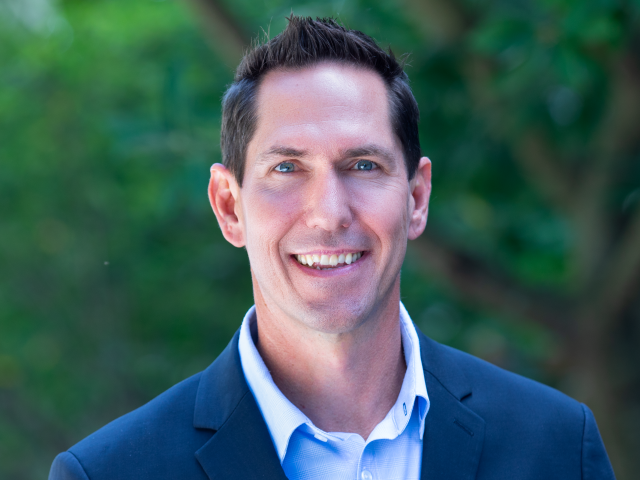A New Sustainability Strategy to Meet Evolving Risks

At Freddie Mac, our sustainability efforts reflect the role we play to support the long-term health of the U.S. housing finance system. In a changing world, these priorities help us continue to fulfill our mission of Making Home Possible equitably and responsibly, while also ensuring we remain focused on our most critical sustainability-related risks and opportunities.
But as needs and risks related to sustainability in housing evolve, so must our strategies. This is why, in 2023, we undertook a refresh of our environmental, social, and governance (ESG) priorities, which led us to refine our strategic sustainability framework and adopt long-term goals and shorter-term focus areas. By sharpening our focus, more effectively allocating resources, and ensuring our ability to influence and address the most significant sustainability-related risks and opportunities to our business, we can better serve our mission of providing liquidity, stability, and affordability to the housing finance system.
Our recently released 2023 Sustainability Report presents a comprehensive look at our priorities and sustainability framework and reports on our activities and the progress we have made. Of course, we cannot do this alone. Through the continued support of trusted market stakeholders and our strategic partnerships, we can work toward achieving our goals and make a real difference.
Our sustainability strategic framework is designed to achieve three long-term goals: protect the future of housing, promote inclusive communities and uphold responsible operations.
We are working to achieve these goals by focusing on four interconnected areas: climate impact, sustainable housing, DEI and human capital, and sustainable operations.
Climate Impact
Freddie Mac has a significant role to play in the housing market. Our work allows us to better understand and promote environmental sustainability, reduce climate-related risks and increase housing affordability.
In 2023, we provided $348 billion in liquidity to the housing market through more than 1,000 lenders. Through products like our GreenCHOICE Mortgages®, we offer financing to homeowners for energy- and/or water-efficiency improvements to their homes. Since 2019, we’ve provided more than $1 billion in GreenCHOICE financing. These loans are also securitized as mortgage-backed securities (MBS) to further incentivize green construction and energy-efficient home improvements. In 2023, we issued nearly $1.9 billion in Single-Family Green MBS.
We recognize that climate-related risks disproportionately affect populations living in traditionally underserved communities who have limited financial resources to adapt and respond to climate risks. To better support these communities, in 2023 we introduced our climate roadmap. This roadmap guides Freddie Mac in our work to help vulnerable populations withstand and recover from climate-induced hardships through programs, policies, research and outreach.
Sustainable Housing
At Freddie Mac, we work every day to provide access to affordable and sustainable housing for families in traditionally underserved communities. This work is expansive and takes many forms.
As an example, in 2023, Freddie Mac launched DPA One®, a program that helps lenders match borrowers to down payment assistance programs. We also launched a Special Purpose Credit Program, the HeritageOneSM Mortgage, which provides down payment and closing cost assistance, as well as conventional financing for various types of land ownership interests for homes located within tribal areas. Lastly, we’ve taken steps to expand access to credit for historically underserved borrowers by using alternative credit data as part of our loan purchase decisions made through our automated underwriting system, Loan Product Advisor®.
In 2023 our credit building initiative for renters surpassed 500,000 participants. More than 300,000 of them increased their credit score. Through our work, we supported 423,000 affordable rental units in 2023, 92% of which were affordable to those earning at or below 120% of area median income. Lastly, in 2023, our Multifamily Impact Bonds program surpassed $20 billion in issuance since launching in 2019. These bonds support programs that make improvements to rental properties and address affordable housing challenges.
Freddie Mac also continued addressing the needs of underserved markets through our Duty to Serve Plan initiatives, which promote affordable housing in rural areas, expanded access to manufactured housing, and energy efficiency in housing across the nation. Our work included providing nearly $13.2 billion in liquidity in support of the creation and preservation of affordable rental housing.
DEI and Human Capital
In order to deliver on our commitments to the housing system, we also must invest in our employees. One way we attract, retain and grow a stronger workforce is by focusing on diversity, equity and inclusion. This focus ensures we reflect the people we are chartered to serve and makes us better equipped to Make Home Possible.
In 2023, we made progress toward our DEI Strategic Plan goals. There is more work to be done, but we are proud to be a majority-minority company, with more than 50% of our employees identifying as racially or ethnically diverse. In addition, women make up 44% of our workforce. We have also been recognized by the Human Rights Campaign Foundation as one of the Best Places to Work for LGBTQ+ Equality every year since 2010.
Our DEI efforts extend to our partners as well. More than 60 diverse suppliers have completed our Supplier Academy since 2016, and we recently expanded our Develop the Developer Academy program to help connect women and minority developers with the tools and resources they need to inspire reinvestment and development in historically underserved communities.
In the years ahead, we will continue to invest in and promote DEI in all aspects of our business. We firmly believe a strong commitment to DEI creates a stronger Freddie Mac and a stronger housing system.
Sustainable Operations
Our sustainability framework also reflects our commitment to responsible business practices and ethical behavior. In 2023, we continued to establish formal oversight of climate-related risks and opportunities, which promotes effective management, builds awareness and encourages best practices. This included strengthening our governance structure by launching both a Corporate Sustainability Committee and a Climate Risk Steering Committee.
We also work to ensure that our operations and employees meet the high standards we’ve set for our organization and act in accordance with our values. In 2023, we eliminated almost 44 metric tons of CO2 through composting efforts, a 13% increase year-over-year, and donated approximately 24,000 meals of leftover food to local food rescue groups. Our employees spent more than 9,000 hours volunteering and 100% completed annual trainings designed to mitigate and manage operational risk.
We look forward to building upon our refreshed sustainability framework to ensure we are Making Home Possible, for today and tomorrow.
To read more about sustainability at Freddie Mac, visit freddiemac.com/about/sustainability.
©2025 by Freddie Mac.







